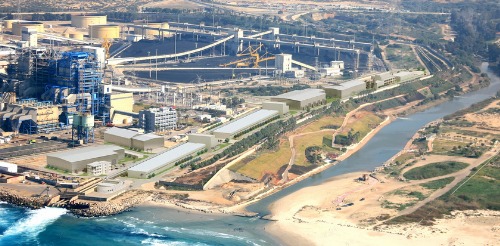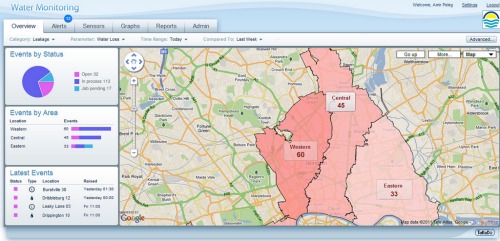Gearing up for the November 2011 WATEC expo, Israel is getting word into the pipeline about new water technology solutions from 400 companies.

It’s like a United Nations meeting in Israel: Every two years, hundreds of delegations from the four corners of the earth come to Tel Aviv’s massive water technology event seeking solutions for water problems in agriculture, municipal waste and infrastructure management.
Gilad Peled, manager of business development at the Israel Export & International Cooperation Institute, is planning for about 200 groups representing potential investors, governments and companies at the November 15-17 Water Technologies, Renewable Energy and Environmental Control (WATEC) conference at the Israel Fairs & Conventions Center in Tel Aviv.
Peled’s first priority in preparing for the conference is to make sure that Israeli water tech companies — large, medium and startup — make a splash globally.
Making his job easier are the proven innovations of about 400 companies he represents. About 200 of these companies are already exporting, accounting for between $2.5 billion and $3.5 billion in exports last year.
The lion’s share of the products from Israel come from known entities in the field: Netafim for irrigation; IDE Technologies for desalination; Tahal Group for water management projects including desalination and wastewater treatment; Amiad, which makes filtration technology; and the water metering company Arad.
What’s flowing into the market
WATEC will showcase these tried and true companies, but it will also be a hotbed for new innovation, something that visitors will see at a special booth featuring 40 young companies.
In innovation, Peled sees the industry split in two. On one side are manufacturers of valves, filters and pipelines, such as Amiad, Bermad, A.R.I. Valves and Arad. “All these companies are traditional but all have very advanced technologies; the best technology in the world,” Peled tells ISRAEL21c.

On the other side are new companies offering high-tech management solutions, like TaKaDu for the smart water grid now installed in London, and water monitoring company Real Tech; and companies that generate energy from wastewater, such as Emefcy. A new firm, Curapipe, can fix leaky water systems using spongy, bullet-shaped substances called “pigs.”
“There are a lot of new solutions for water leakage, water management and online water monitoring,” Peled says.
Much of the innovation is being incubated at Kinrot Ventures, the world’s first fully dedicated water technology incubator. Kinrot is privately held by the Canadian Stern Group in cooperation with the Israeli Chief Scientist as part of Israel’s technology incubator program.
The rising tide of security solutions
Looking 10 years into Israel’s future, Peled sees it as a leader in water security. “And I am not just talking about security technologies against terror activities. Human mistakes can cause a lot of damage. It’s a niche and we have very holistic programs to analyze the water and to know how to take care of it [if a problem should arise], to know which valves to close.”
One to watch is Ori Yogev’s Whitewater, a private global company that pairs cutting-edge Israeli water technologies for water management, quality and security with municipalities seeking tailored solutions for guaranteeing a constant supply of quality water and optimizing the production, management, control and delivery of water.
Yogev thinks that beyond security, Israel will be a leader in two main water technologies: providing wastewater for energy and reducing energy usage during water treatment and processing.
Raising efficiency, lowering costs
For some countries, treating water gulps 20 percent of their overall budget – the number is closer to 15% in Israel. “It’s about how to take control of water efficiency and the management of water loss. We’ll have new technologies to define water loss and fix it,” Peled projects.
“Every district today has its own point of view for water management. But there is a market shift to creating one big system.” Companies like SAP, IBM, and Siemens are looking to exploit Israeli know-how, he says. “They are getting into this new gap and they use a lot of Israeli technologies in R&D for water software management.”
WATEC organizers expect about 3,000 foreign visitors, and more than 25,000 local participants. The last conference included delegates from the Palestinian Authority and Turkey. “I am sure they will come again,” says Peled. Regarding Turkey, despite a political hiccup over the last year, “our commercial activities are still good,” he stresses.
Supported by the Israeli ministries of Industry, Trade & Labor, Environmental Protection and Foreign Affairs, as well as Israel NewTech – National Water & Energy Program, the Israel Export & International Cooperation Institute and the Israel Industry Center for R&D, WATEC’s focus this year will be showing how water tech transfers into successful projects and enterprises — both for the developed world and those at risk of severe water insecurity.












